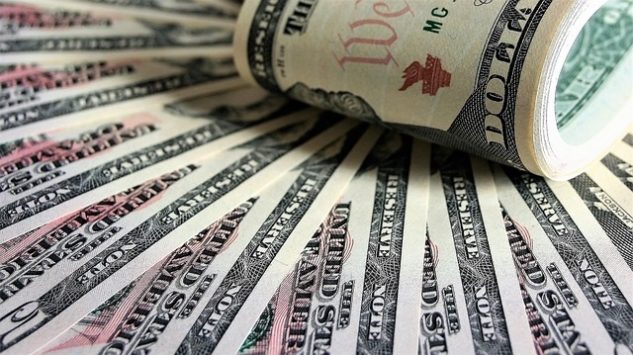Issue Briefs

No, Mr. President, there isn’t a Santa Claus
Martin Hutchinson
December 27, 2018
President Trump’s economic policies are mostly very sensible. Yet in two areas he has indulged in wishful thinking, proclaiming essentially that Santa Claus will bail out the United States. One is fiscal policy, where he has not restrained spending, nor produced any plan beyond faster economic growth to solve the nation’s yawning budget deficit. The other is monetary policy, where he rails against the Fed’s attempts to restore sanity, and believes its job is to act as Santa Claus, bailing the U.S. out of recessions. Well, Mr. President, there is no Santa Claus.
Bad Fed policies
The essential problem is that the entire country, under the influence of Fed policies, has been running its businesses like Trump ran his casino empire in the early 1990s. New projects are financed by debt; and even worse, debt is routinely used for stock buybacks, (this is more dangerous because no additional source of revenue is being created when this is done.) Although reckless, this behavior appears justified, because so far low interest rates have always bailed out the gamblers; and so the gamblers assume they always will do so.
Fed lost it back in 1995
The Fed abandoned sound monetary policy in February 1995 when it started printing the money that brought the gigantic late 1990s stock market boom and all that has happened since. Fed chairman Alan Greenspan noticed the problem quite quickly. His prescient “irrational exuberance” speech was made in December 1996, more than 3 years and 40% on the Dow below the eventual peak in March 2000. However, he notoriously did nothing to correct the problem he had identified.
Fed policies probably saved Trump
Trump very likely owes his own financial survival to the February 1995 change in Fed policy. 1995 was the year that Trump’s tax returns showed a $916 million loss. His ability to survive such a write-down owes much to his relationships with his bankers, certainly; but also to the Fed’s encouragement of the kind of speculative high-risk lending Trump needed to survive. Now, 23 years later, Trump regards the Fed’s sloppy encouragement of asset bubbles as the proper state of things. However, the Fed’s policies have produced immense damage throughout the economy, and those chickens are now coming home to roost.
The case of Boeing
This week Boeing (NYSE:BA) caused a jump in its stock price by increasing its dividend and announcing a future and much larger increase in its stock repurchase program. This looks defensible, until you look at Boeing’s balance sheet, where you find that not only does it have negative tangible net worth, it now has book net worth of minus $1.3 billion. In other words, the entire Boeing edifice, with its $116 billion of liabilities, is now carried on no base at all, financially; but is simply expected to support itself in mid-air. Since the difference between tangible and book net worth is a relatively modest $10 billion, the decapitalization of Boeing has been almost entirely caused by foolish capital repurchases, with Treasury stock repurchased of $68 billion.
We should remember, even if Boeing top management cannot, that the aircraft business is highly cyclical. At some point, Boeing will need to dip into its reserves to weather a bad year or two. However, it will then have no reserves to dip into. It may then go bust. But before it does so, it will undoubtedly conduct gigantic emergency share issues, for as much money as it can obtain, which of course will take place at a huge discount to the prices at which it bought back stock. To buy shares in the market for –say– $300 per share and sell them back later at $100 per share is poor business indeed. Furthermore, it is not at all clear that Boeing will be able to sell enough shares to raise its downturn capital needs. In which case it will go entirely unnecessarily bankrupt. (Disclosure: I have a very modest holding of Boeing put options.)
Fortune 500 companies engaged in foolish stock repurchases
Boeing’s position is repeated to a greater or lesser degree across much of the Fortune 500. Through foolish share repurchase schemes, the giants of U.S. industry have destroyed their capital bases and will hence run into severe difficulties when even a minor recession hits. Since these companies will need to finance themselves through emergency share issues, the trajectory for the major U.S. share indexes is inexorably downwards.
However much Trump may wish otherwise, there is no Santa Claus.
Bad fiscal policies not modified by Trump
In fiscal policy also the Trump administration needs a Santa Claus to bail it out, though here there has been a certain amount of self-help. First, note this. The United States is currently running budget deficits of $1 trillion a year, and this is happening at the top of a business cycle. Were there to be any kind of recession, those federal budget deficits would rapidly spiral above $2 trillion, or 10% of GDP. That is insupportable in the long run. Like Japan since 1990, the country will simply incur so much debt that debt management will dominate every waking moment, and the bankruptcy scenario will continually loom.
Trump inherited a bad fiscal situation
In fairness, almost all these fiscal problems stem from policies that pre-date Trump. The Social Security and Medicare deficits now looming were caused by policies enacted decades ago, and most of the current $1 trillion deficit has its roots in disgracefully sloppy budgetary management and wasteful new spending programs under the last two Presidents, Obama and Bush, (though not President Bill Clinton, bless him.) Trump has added only modestly to the problem, with his military spending build-up and his 2017 tax cut (which may pay for itself, at least in part, through faster economic growth.)
Corrective measures?
Trump has however pursued two initiatives that may lessen the budget problem, though they are unlikely to eliminate it altogether. First, his tax reform and other pro-growth policies, notably deregulation, appear to have restored the trend growth rate of the U.S. economy to around 3% annually and U.S. productivity growth to around 2% annually. With 2% annual productivity growth in the economy, there is at least a decent chance that the Federal government’s revenues will increase towards the bloated spending level, narrowing the deficit and lessening the debt problem.
Tariffs increase revenue
Second, Trump’s tariff wars produce some new revenues for the Federal government and help balance the tax system, which previously was loaded entirely on the domestic economy and not at all on trade. Again, it is very unlikely that tariffs will produce enough revenue to balance the budget, and they would do enormous damage to world trade if they did, but they will certainly make a hole in the deficit, probably reducing it by around 10-20%. That is greatly to be welcomed.
Partial remedy, not a cure
That said, even taken together, it is highly unlikely that President Trump’s positive policies will eliminate the budget deficit. It is however absolutely certain that any reversal of them would cause it to spiral to infinity, condemning the United States to insolvency and poverty.
It is thus very much to be hoped that Trump achieves re-election in 2020, and that whoever succeeds him in 2024 is either a Trumpian Republican (preferably with the addition of a Coolidge-like taste for government economy) or at worst a Bill Clinton Democrat who understands the damage that over-regulation and wasteful spending can do.
Problems ahead
Trump himself undoubtedly wishes for re-election, or if he feels like retiring in 2020, to be succeeded by someone like-minded. However, the twin problems of monetary and fiscal policy may not let him achieve this. For one thing we are likely to see a stock market collapse as the Fortune 500 companies that have undertaken shares buybacks are forced to recapitalize themselves with emergency share issues at much lower prices. We are also likely to see a crisis in the junk bond market. Indeed such a crisis has been quietly brewing for over a year already, as it did in the housing finance market in 2006-07.
Recession?
Whether those two problems cause an outright recession with a rise in unemployment is as yet unclear, but it will be tough for the U.S. to avoid one, almost certainly arriving before November 2020.
That in turn will make Trump’s re-election very hard to achieve, and potentially condemn the economy to worse policies and worse problems in future. Only a Santa Claus, in the form of very good luck, can save President Trump’s and our own futures.
Yes, Mr. President, we too wish there was a Santa Claus. But alas, there probably isn’t one.
 |
Martin Hutchinson is a GPI Fellow. He was a merchant banker with more than 25 years’ experience before moving into financial journalism. Since October 2000 he has been writing “The Bear’s Lair,” a weekly financial and economic column. He earned his undergraduate degree in mathematics from Trinity College, Cambridge, and an MBA from Harvard Business School.
This article was originally published on the True Blue Will Never Stain http://www.tbwns.com |
The views and opinions expressed in this issue brief are those of the author.